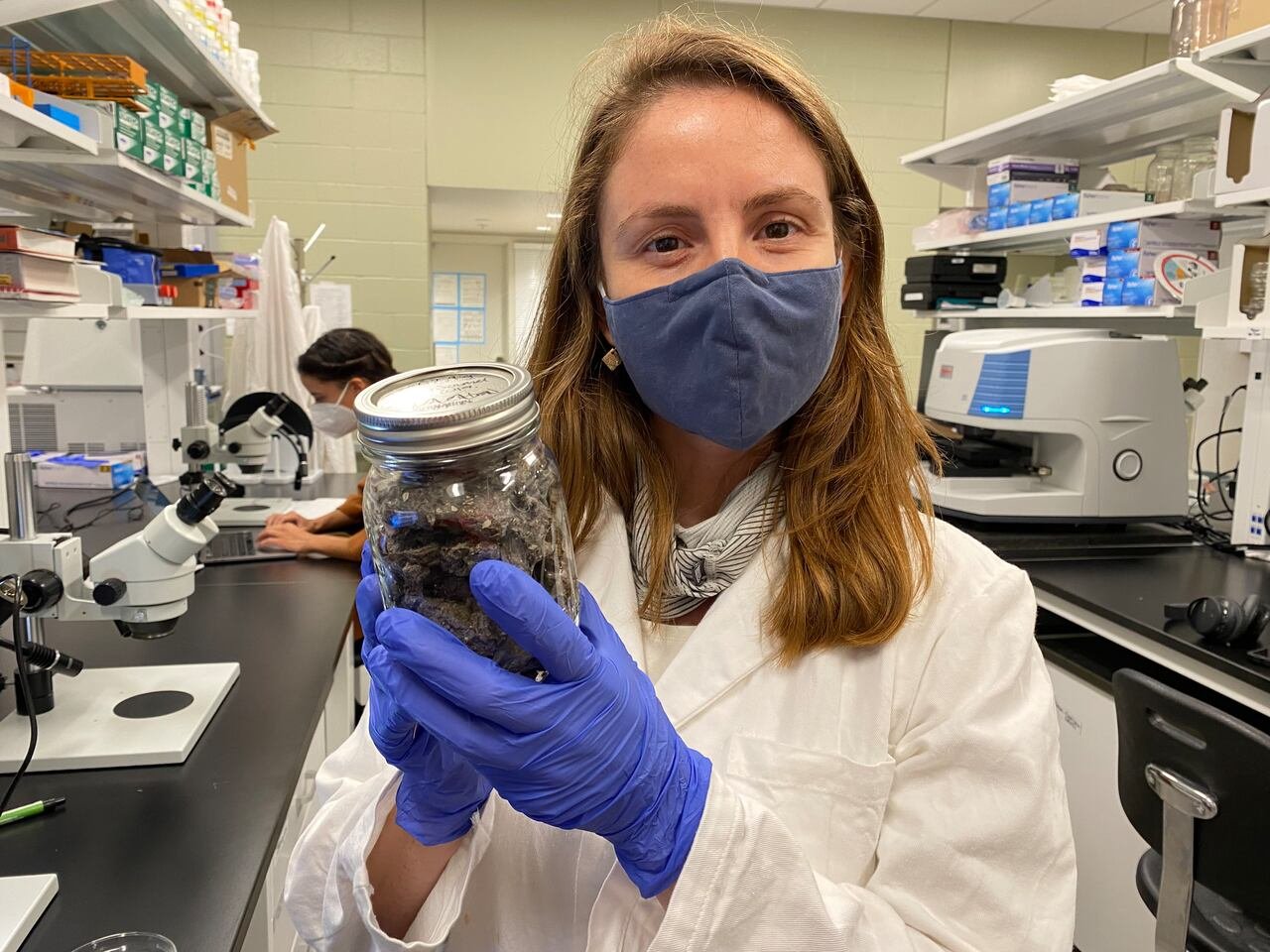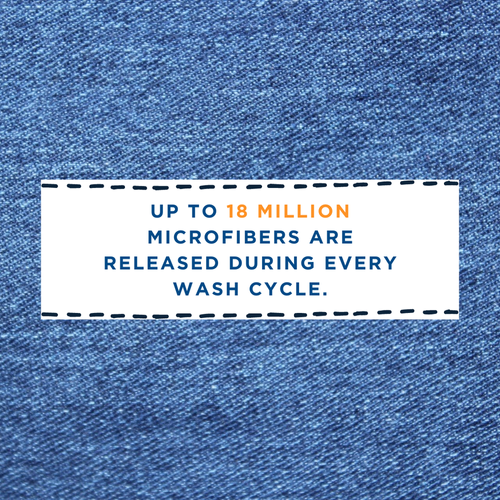MICROFIBERS & TEXTILES

More than 60% of the clothes we wear today are made of plastic. Common fibers like nylon, spandex, and polyester are derived from fossil fuels and, like all plastics, don’t break down in the environment. Microfibers shed from our clothes when we wear, wash, and dry them, making their way into our air, waterways, ocean, food, and bodies. 5 Gyres continues to narrow the focus on this microscopic polluter through scientific research to understand the issue and develop solutions, expeditions and symposiums with experts in the field, and policy work backed by our science that proves filtration is a viable solution.
Did you know?
WHAT ARE MICROFIBERS?
Microfibers are tiny threads that shed from the clothing we wear every day, and up to 18 million can be released during every wash cycle. Microfibers can be natural (cotton, wool, linen, hemp, silk), semi-synthetic (rayon, modal, viscose), or synthetic (polyester, nylon, spandex, lycra). Once released, microfibers travel to wastewater treatment plants, where they can enter the environment. Microfibers are found in the ocean, agricultural lands, wildlife, air, drinking water, and even human lungs.
THE GOOD NEWS: SOLUTIONS EXIST!
Our research shows that washing machine and dryer filters are a proven solution that can dramatically reduce the amount of microfibers entering the environment. While filtration is an easy and cost-effective solution in the near term, the microfiber issue overall requires action at every step of the textile supply chain. Reducing Microfiber Pollution: An Industry Playbook provides practical strategies for companies to reduce microfiber emissions during design, sourcing, and manufacturing.
What can you do?
INDIVIDUALS:
Buy Less: only buy what you need, and thrift/reuse/repair/regift whenever possible
Wash Less: only wash when you need to, and when you do, wash cold, on a delicate cycle, and air dry
Shed Less: install a washing machine filter or use a microfiber-catching bag
Wear Less: opt for organic/natural materials over synthetic when possible
COMPANIES:
Package Less: replace plastic polybags with a better alternative, like glassine, or eliminate them altogether
Recycle More: implement takeback and recycling programs
Shed Less: incorporate sheddability standards into the production of clothes
Innovate More: take practical steps to reduce microfiber emissions across the entire supply chain
Resource Hub
A report to advance the knowledge needed to reduce microfiber pollution within the fashion and textile industry.
A guide to readily accessible solutions to tackle a major source of microplastic pollution.
A series of guides that support the textile industry in reducing microfiber emissions across the entire supply chain, including design, sourcing, and manufacturing.
EU whitepaper calls for the mandate of filters in new washing machines as the only effective, near-term solution to reduce the release of microplastics in the environment.
Peer-Reviewed Papers:
Environmental Science & Technology Letters: Advancing Microfiber Research: A Call for Chemical Transparency and Coordination between Science and Industry (December 2025)
Environmental Toxicology and Chemistry: Airborne microfiber capture: secondary filtration a solution to filter microfiber emissions from clothing dryers (November 2025)
Environmental Research Communications: Commercial clothes dryers: a source of microfiber emissions to air (November 2025)
Environmental Toxicology and Chemistry: Exposure to Cotton and Polyester Microfibers Leads to Different Fatty Acid Profiles and Chemical Contaminants Concentrations in Juvenile Rainbow Trout (April 2025)











